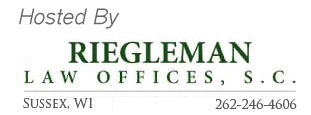In light of the recent pandemic, there has been an increased use by the public of “telehealth” (“TH”) with their medical providers. This development has motivated Wisconsin chiropractors to begin considering the use of this procedure in their own unique practices. This new standard of practice would ultimately be regulated by the state’s Chiropractic Examining Board. There are at least four legal areas of concern with the current regulations which impact the practice of telehealth for chiropractors in this state.
- Chiropractic Regulations in Chapter 4 of the Code – Two sections of this chapter indirectly imply that “TH” falls within the scope of chiropractic. Section 4.02(1) states that an objective of chiropractic treatment is the “management and rehabilitation necessary for the restoration and preservation of health”. Menawhile, section 4.02(4)(c) indicates that “treatment” includes “education, (and) lifestyle modification counseling”.
- Two other sections of the Code place restrictions on virtual treatments. Both sections 4.05(2m) and 6.02(9) state that it is “prohibitive practice” to provide treatment without a “competent assessment” of patients. Docotrs need to make sure that the telephone or virtual “screening” constitutes a competent assessment for the purpose of providing out-of-office treatment of the non-acute patient.
- There remains the regulatory problem of “supervising” the care through TH. Section 10.01(2) requires the doctor to be “directly supervising” any CT’s or other support staff who may be involved with care of the patient. This raises the persistent issue of whether the doctor needs to be conducting all the TH or has the ablility to delegate record keeping and other perfunctory roles to the CT/staff if the doctor is not physically present with the CT at the time of the conversation.
- There remains the record keeping obligation even while care is offered through TH. Although it is not clear as to how extensive records must be kept with TH, Section 11.03 of the Code addresses what record keeping may be required during this process.
Unfortunatley the Examining Board in Wisconsin has not directly addressed the issue of TH. However, these specific regulatory matters should be taken into consideration whenever a doctor contemplates providing this type of care. Future blogs will provide more practical applications for the doctor venturing into this form of service for patients.

 COMMUNITY.
COMMUNITY.